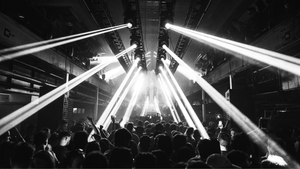The Night Time Industries Association has published its latest stats about closures in the UK clubbing sector, reporting that 396 nightclubs have closed down since the start of the COVID pandemic in March 2020. This constitutes 31% of the market, says the trade group, and the impacts go beyond economic repercussions and represent “a cultural crisis endangering the vibrancy and diversity of our nightlife".
Urgent government support is needed to halt this trend, argues NTIA boss Michael Kill, saying that this should start with a VAT cut for the sector. “The marginalisation of nightlife businesses has left them feeling neglected, questioning the government's motive and with limited avenues for survival", he says. "As we navigate recovery, it's imperative that policymakers acknowledge the vital role of these establishments and provide the support they urgently need".
Like grassroots music venues, and independent festivals, nightclubs have faced various challenges since the end of the COVID lockdowns, including surging running costs and the impact of the cost of living crisis.
Rekom UK - the largest operator of nightclubs in the UK, which called in the administrators last month and has since announced the closure of seventeen venues - has also cited changes in the student market, with students traditionally being key customers for midweek trade.
Changes within the student market are partly the result of the wider cost of living crisis, with many students having less money to spend on socialising, and putting more hours into part-time work to cover living costs, reducing the time available for going out.
Rekom boss Peter Marks spoke to the BBC this week, confirming that students are going out later and spending less, while the costs of running clubs is increasing.
Referencing a recent visit to his company's club in Leeds, he added, "I walked around between 7pm and 11pm, and there were no more than 200 people out in the city. Two years before, it would have been really quite busy and buzzing".
There are other factors impacting on how students spend money on entertainment, however. The BBC report also notes research that suggests young people today generally drink less alcohol, which impacts on where they choose to socialise and how much they will spend at the bar. The BBC also quotes retail analyst Catherine Shuttleworth who focuses on increased choice and the long term impact of the lockdowns on younger consumers.
"There are bars with darts and golf, many more food options and lots of pop up stuff - especially in summer", she says. And "the behaviour of young people has also changed since the pandemic, with those who turned eighteen in lockdown not getting into the habit of going out clubbing".
Rekom also backs the NTIA's call for more government support for the nighttime sector, in particular via a VAT cut. Kill adds that any government support "must be targeted, transparent and substantial to enable businesses to withstand the ongoing challenges and emerge resilient".
"The NTIA stands prepared to collaborate with policymakers to devise effective solutions that safeguard the future of our nightclubs and preserve their crucial role in our cultural heritage”, he concludes. “We implore the government to heed our urgent plea and act decisively to prevent irreversible losses within the nighttime economy".

